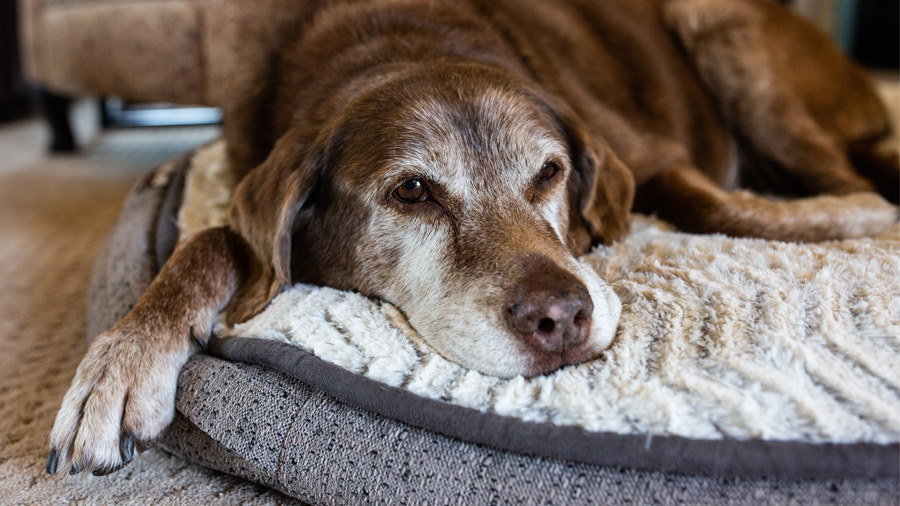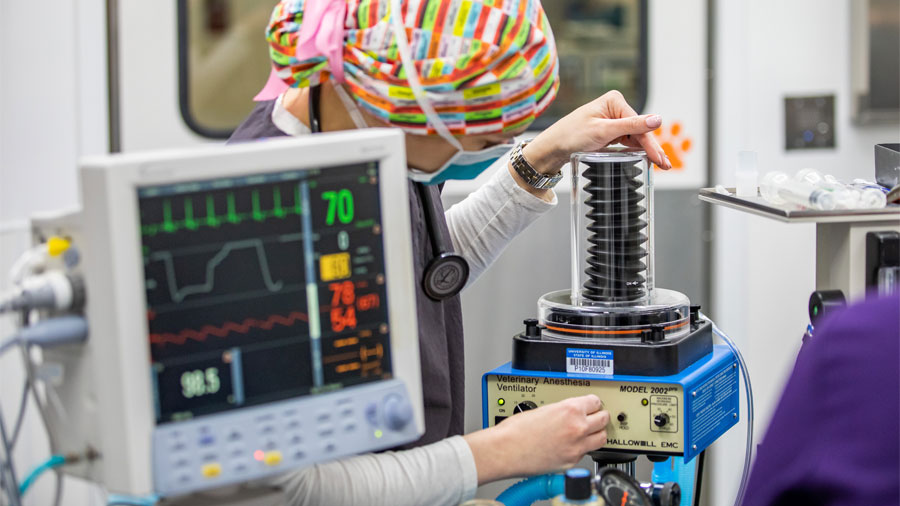Normal Life Possible for Dogs with Palatal Defect
“Every 3 minutes, a child is born with a cleft lip or cleft palate” begins the heartrending appeal for donations to ensure that these children have access to the relatively inexpensive and highly successful surgical repair that will restore their smile.
Dogs can also be born with this condition, called a palatal defect, in which the soft tissue and bone that separate the mouth from the nasal cavity has not formed properly. Dr. Katherine Kling, who practices in the dentistry service at the University of Illinois Veterinary Teaching Hospital in Urbana, says surgical intervention can provide these puppies with a chance for a normal life.
Signs and Consequences of Palatal Defect
“When a palatal defect is present, contents in the oral cavity can pass into the nasal cavity, which is part of the respiratory tract,” explains Dr. Kling. “That means food can be inhaled into the lungs. In nursing animals, milk inhaled into the lungs will cause aspiration pneumonia, a life-threatening complication for animals with immature immune systems.”
![[before and after Trooper's surgery]](https://vetmed.illinois.edu/wp-content/uploads/2021/04/pc-kling-palate-fix.jpg)
Most puppies with severe palatal defects are unable to nurse and do not survive beyond the first few days of life. When the palatal defect is milder or noticed quickly, supportive care and eventually surgical repair may help save a puppy with such a defect, according to Dr. Kling.
Puppies with a palatal defect are likely to be thin or smaller than their unaffected littermates. Other possible signs of the problem include coughing while attempting to nurse and milk near the animal’s nostrils after nursing. (Milk may enter the nasal cavity and flow the wrong direction, out the nose.) Milk in the nasal cavity can cause rhinitis, the inflammation of the tissue and nose.
“Surgery is typically necessary to address a palatal defect, but may need to be delayed until the animal is old enough to undergo surgery,” says Dr. Kling.
Tube Feeding Support
A puppy with a diagnosed palatal defect can be supported by monitoring for signs of aspiration pneumonia, such as coughing, gagging, sneezing, and trouble breathing. Depending on the severity of the defect, the puppy may need be fed via a smooth tube passed through the mouth and the esophagus into the stomach. Tube feeding should be initiated by a veterinarian, but the puppy’s owner can usually be taught to deliver subsequent feedings.
“This feeding method bypasses the opening between the mouth and the nose, greatly decreasing the chances of aspiration,” explains Dr. Kling
Supporting a puppy in this way until it is three to four months of age can allow for safer anesthesia and the growth of more mature soft tissue for use in the surgical closure of the defect. Some defects can be closed in one procedure and others may require two or three procedures.
Surgical Repair and Recovery
When the puppy is deemed strong enough to undergo a surgery, the veterinary surgeon will make flaps out of the existing palate to close the defect. Sometimes this may take multiple surgeries.
“The key in this procedure is to maintain the blood supply to the tissues and to allow for tension free closure so that the repair can heal,” says Dr. Kling,
According to Dr. Kling, blood vessels on the palate may be especially vulnerable to trauma until healing is complete, which means much care must be taken to ensure that the puppy doesn’t do anything to damage these blood vessels. Blankets, toys, or other objects that the puppy might chew on must be withheld for a time to protect the surgery site; food needs to be soft enough to lap up like water.
“This may be the most challenging part of the treatment because puppies love to chew!” says Dr. Kling. “After complete healing, which may take three to five weeks after the final surgery, the puppy will be able play and eat just like any other puppy.”
For animals with palatal defects, with successful repair, the long-term prognosis is a normal life.
If you have any questions about palatal defects, contact your local veterinarian.
By Hannah Beers

![[Trooper the dog was born with a palatal defect]](https://vetmed.illinois.edu/wp-content/uploads/2021/04/pc-kling-palate-trooper.jpg)


